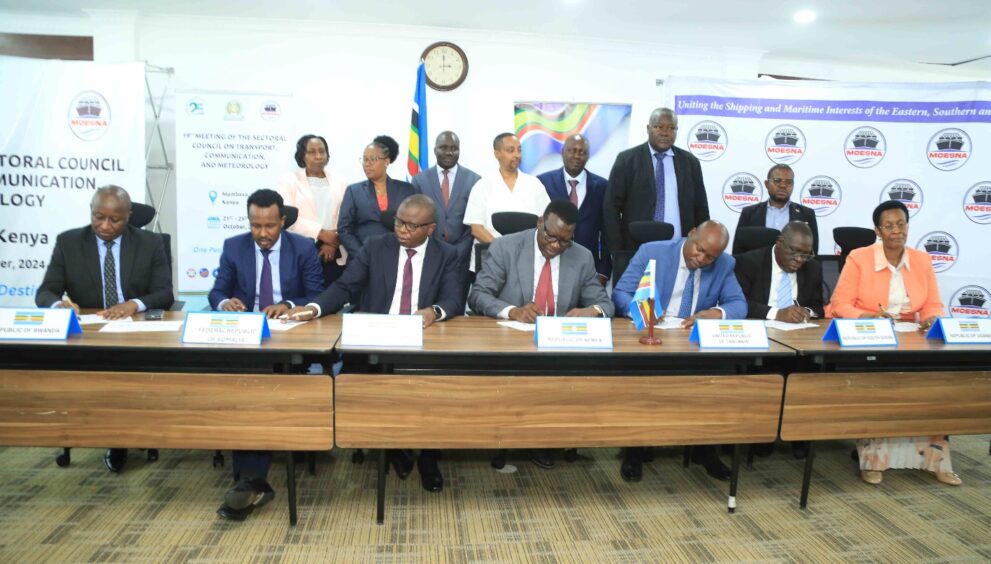EAC Leaders Call for Removal of Barriers to Boost Cross-Border Trade and Integration

At the 19th EAC Sectoral Council on Transport, Communications, and Meteorology in Mombasa, Kenya, EAC partner states were urged to eliminate barriers that hinder transportation and cross-border trade. Kenya’s CS for Roads and Transport, Davis Chirchir, emphasized the importance of efficient transport and digital connectivity for regional economic growth.
East African Community (EAC) Partner States have been urged to dismantle all physical and non-physical barriers hindering transportation to boost cross-border trade and regional economic growth. Kenya’s Cabinet Secretary for Roads and Transport, Davis Chirchir, highlighted the vital role of efficient transport systems in enhancing access to local and global markets.
“Transportation facilitates the movement of people, goods, and services, thus enhancing economic integration,” he said. He also pointed to digitalisation as essential to connectivity and growth, stating, “It is through effective communication systems that we can share knowledge, foster innovation, and build a cohesive community.”
CS Chirchir made these remarks while presiding over the 19th EAC Sectoral Council on Transport, Communications and Meteorology in Mombasa, Kenya. He further noted the importance of meteorology for anticipating and mitigating climate impacts, adding, “Accurate and timely meteorological data are essential for planning and protecting our infrastructure, agriculture, and communities.”
EAC Deputy Secretary General for Infrastructure, Andrea Aguer Ariik Malueth, explained the importance of infrastructure investment along the Northern and Central Transport Corridors in improving intra-regional trade, currently at 15%. “Intra-regional trade in Europe, Asia, and Latin America is over 60%. This trade boosts economic integration and development, reducing dependence on external markets,” said Ariik.
Ariik also recognised progress in rail transport projects to realise the East African Railways Network, highlighting Tanzania’s recent Dar es Salaam-Dodoma service. “A total of 1,120Km of SGR is operational in Kenya and Tanzania, with an additional 1,100km under construction in Tanzania,” he noted, urging resource mobilisation to prevent programme gaps.
The DSG emphasised the need for automatic weather stations and quality management systems for Aeronautical Meteorological Services to tackle climate change and improve air safety. “So far, five radar stations and over 30 automatic weather stations have been added to the regional network,” he said. However, only three countries currently have autonomous meteorological agencies, prompting a call for regional uniformity.
The meeting also featured key regional representatives, including Hon. Dieuconne Dukundane of Burundi and Dr. Jimmy Gasore of Rwanda’s Ministry of Infrastructure, along with other stakeholders from Tanzania, South Sudan, and Somalia







